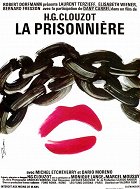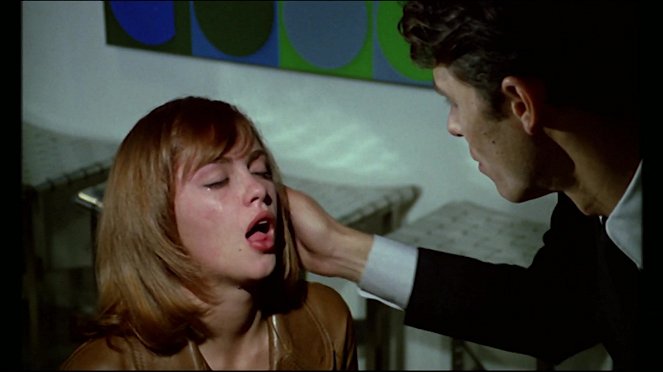Regie:
Henri-Georges ClouzotKamera:
Andréas WindingBesetzung:
Laurent Terzieff, Elisabeth Wiener, Dany Carrel, Bernard Fresson, Noëlle Adam, Claude Piéplu, Pierre Richard, Michel Piccoli, Charles Vanel (mehr)Inhalte(1)
“Seine Gefangene” mit Laurent Terzieff, Bernard Fresson und Elisabeth Wiener ist ein spannendes Liebesdrama, bei dem die Protagonistin sich geradewegs in die Hölle begibt: Josée ist mit dem Avantgarde-Künstler Gilbert verheiratet. Eines Tages trifft sie auf den Teufel in Person, Stanislas, einen einflussreichen Galeristen, für den auch ihr Mann arbeitet. Er zeigt ihr Nacktfotos, die sie auf das Tiefste verstören. Nichtsdestotrotz möchte auch sie als Aktmodell für ihn posieren. Entgegen ihrer Abmachung mit Gilbert, sich von anderweitigen Affären zu erzählen, verheimlicht sie die entstehende Beziehung zu Stan. Als Gilbert wegen einer Ausstellung ins Ausland reist, fährt sie mit Stan in die Bretagne. Zunächst verleben sie eine unbeschwerte Zeit, doch dann kommt es zum Eklat. Als Gilbert kurz darauf von der Affäre erfährt, droht er Stan umzubringen. (Verleiher-Text)
(mehr)Videos (1)
Kritiken (1)
A psychological pastiche on the theme of the split of an individual between his repressed desires and the external mask itself suffers from a split between pseudo-Giallo clichés and artistic seizures. The strong moments of formalistic sequences, during which strangely in the final "dream" passage the breakdown of the false human ego shines through a frantic film cut and op-art attack on the human face, also show the limit of this film - in the tradition of conventional cinema, this 3.5-minute magnificent sequence is framed as a mere distinct diegetic insert: delirium of a fictional character... And not - as demonstrated for example by one of the most famous confessed sadistic fetishists of the French artistic scene of the 2nd half of the 20th century, Alain Robbe-Grillet - to transfer sadomasochistic impulses from the bodies of characters directly into the body of the film itself - generalized depersonalizing cut and transformation of characters into mere puppets in the sadistic hands of the artist are in strong contrast to Clouzot's retreat back to mere depiction of traditional psychologizing dilemmas of characters, to whom we are supposed to believe in their credibility with the "effect of reality" of conventional artistic codes. The partially original arthouse in the best sense of the word thus suffers from occasional gusts of stereotypes from better European sexploitation, and in the end, the viewer is left with a taste of almost pulp realism.
()

